Speeches Shim
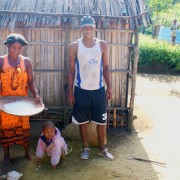
The women of Andongozabe village in northern Madagascar understand the importance of family planning. They’ve learned the benefits from their resident Community Health Volunteer (CHV), Soanette, who provides information and family planning services to 107 women.
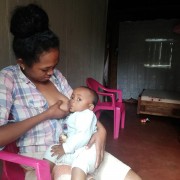
25-year-old Victoria Rebezara, from the village of Ampasimbola in eastern Madagascar, is a happy mother of a 7-month-old baby boy, Keychann. Keychann is growing well and is totally healthy. Victoria has breastfed him since birth – advice given by her local Community Health Volunteer (CHV). "I have exclusively breastfed my little boy from birth until he was six months old, as the CHV advised. He has not been severely ill so far, and he has the appropriate weight for his body size and age. Breastfeeding hasn’t been difficult and I’ve had a good supply of milk. I breastfeed at least ten times in the morning and on-demand at night," she says.
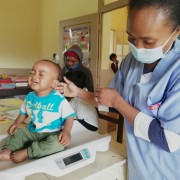
Encouraging new mothers to exclusively breastfeed their babies is standard practice at Vavatenina’s primary health center, according to Dr. Tiarisoa Léocadie Bernard, the facility’s head doctor. In addition to the center’s health workers to promote exclusive breastfeeding, the local community health volunteers (CHVs) are routinely reminded about the importance of this healthy practice during monthly meetings, an activity supported by USAID’s Mahefa Miaraka program.
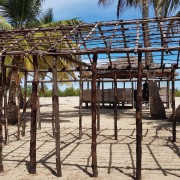
World Mangrove Day is commemorated every year on July 26. This celebration aims to raise awareness about the importance of mangrove ecosystems and to promote solutions for their conservation and sustainable use. Madagascar is especially blessed with a wealth of mangroves. 2% of the world's mangroves are located here, accounting for 20% of African mangrove forests.
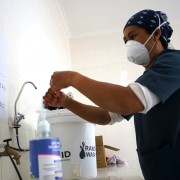
The donation is thanks to a collaborative effort between the United States Africa Command, which provided the funds to buy the locally-made face coverings, the Madagascar Ministry of Public Health, which identified the areas for the face coverings to be delivered, and USAID Madagascar, whose IMPACT health project operated by PSI Madagascar arranged for the delivery of the protective equipment via the Regional Directorates of Health to the front-line workers. The donation in Moramanga was also supported by staff from the USAID RANO WASH project

Comment
Make a general inquiry or suggest an improvement.